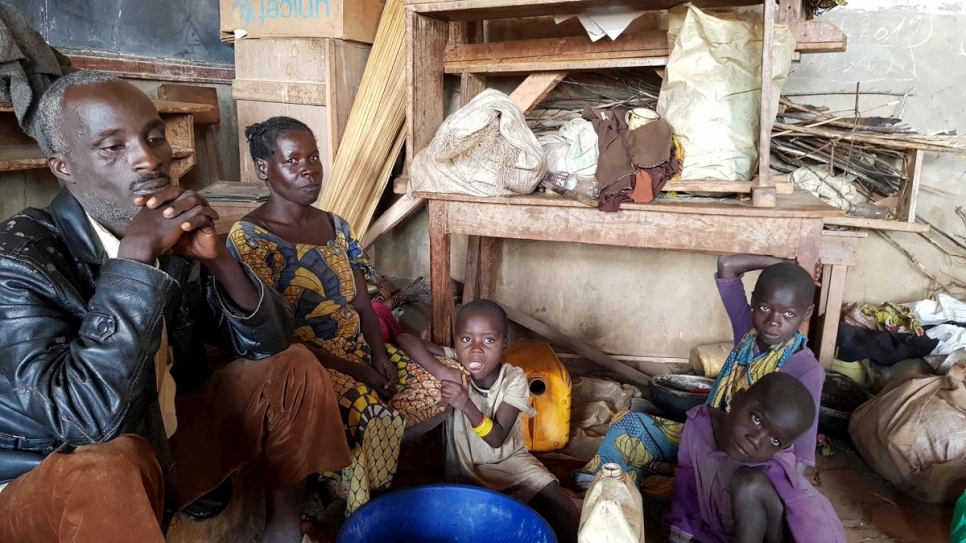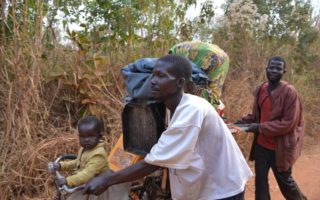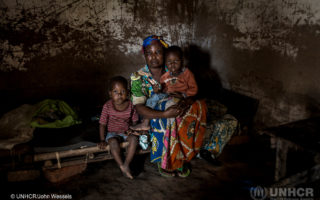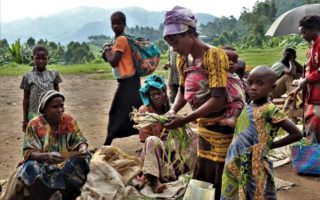
Dino, 44, and Jeanne, 40, fled violence in their village with their four children. © UNHCR/Nándor Gergely
Two months on since violence forced hundreds of thousands of people to flee their homes in the Democratic Republic of the Congo’s eastern province of Ituri, severe underfunding and growing insecurity mean rising numbers are in need of humanitarian assistance and are unable to return home.
In the last three weeks of June alone, more than 145,000 newly displaced people sought safety and assistance in displacement sites across Ituri, while 215,000 more are estimated to have fled to neighbouring areas. Difficulties with access in some places, and the large area from which people have fled, means the real figure is difficult to verify. Thousands have continued to flee since, although at lower rates.
Ongoing violence between militia groups means many fear to return home. During a recent trip to the town of Djugu to provide assistance, staff of UNHCR, the UN Refugee Agency, found empty village after empty village and countless torched and abandoned houses.
People have been forced to find shelter wherever they can. Some have been taken in by other families. Many are forced to sleep in the open. Drodro, a relatively small town, has seen its population triple in just a few weeks, as local schools and churches have transformed into large, squalid dormitories.
Our staff have heard numerous testimonies from people who had lost family members. Some who had tried to return home to collect food and possessions were killed by armed groups as a warning to others not to return. There is prevailing fear for what the future holds.
The most urgent needs are for shelter, water, sanitation, healthcare and food. Overcrowded conditions are putting women and girls at high risk of sexual and gender-based violence. Poor hygiene conditions caused by the lack of clean water and latrines is increasing the risk of diseases spreading.
UNHCR is providing assistance at the displacement sites, where we are building collective emergency hangars for those sleeping in the open, and individual shelters for the most vulnerable families. However, new shelters are urgently needed to allow people to vacate schools before the new school term begins in early September. Basic household items are being provided but needs are far outweighing UNHCR’s current stocks.
Funding for this humanitarian crisis remains critically low. UNHCR is appealing to the international community to come forward with further funding and allow humanitarian organizations to provide basic, life-saving assistance. So far this year, UNHCR has received just 32% of the US$150 million needed for our operations.
For more information on this topic, please contact:
- In Geneva, Charlie Yaxley, yaxley@unhcr.org, +41 79 580 8702
- In Geneva, Babar Baloch, baloch@unhcr.org, +41 79 513 9549
Originally published by UNHCR on 16 August 2019





